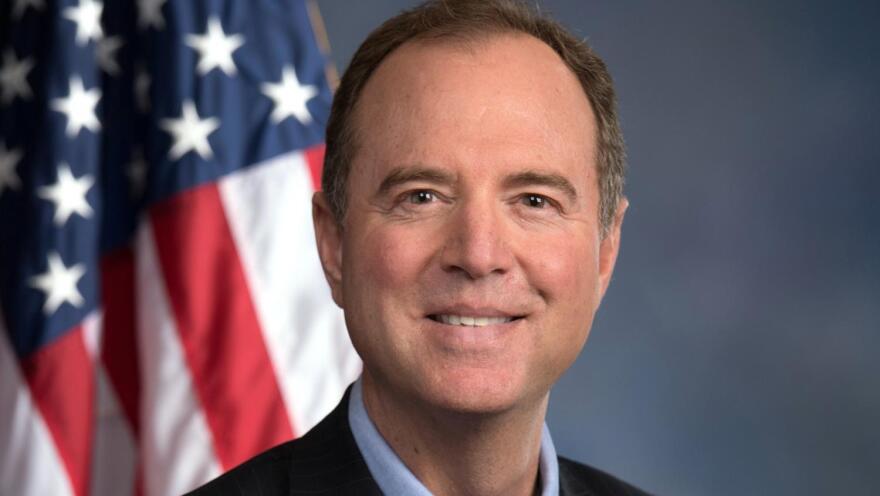Unveiling the Concerns of Kash Patel and the Push for Greater Transparency in Washington
The Fear Surrounding Kash Patel and the Drive for Transparency in Washington
Tennessee Republican Senator Marsha Blackburn has stirred controversy with her remarks on Fox News, addressing the concerns among Democrats about Kash Patel potentially leading the FBI. Blackburn claims that key Democrats, including Senator Adam Schiff, are worried about Patel’s potential to expose their role in what she refers to as the “Russian collusion” hoax during President Donald Trump’s first term. Blackburn also touched on the shifting political alignment of former Democrats like Robert F. Kennedy Jr. and Tulsi Gabbard, who now support what they perceive as a more “common sense” approach alongside President Trump. This article explores the background of Patel’s reputation, the historical context of the “Russian collusion” narrative, and the broader implications of his push for transparency in Washington.
Who Is Kash Patel?
Kash Patel emerged as a prominent figure during a time of political controversy, known for his involvement in national security and investigative matters. With extensive experience in intelligence and oversight, Patel has become a well-known advocate for transparency in government. His deep understanding of key investigations, particularly the probe into Russian interference and the alleged “collusion” with Trump’s campaign, has positioned him as a formidable opponent to those who might have benefited from the narrative. Blackburn asserts that Patel’s knowledge could expose critical details about Democratic leaders like Senator Schiff, whose involvement in the collusion narrative could be called into question.
Patel is seen by many as a symbol of transparency, a response to the political opacity and partisanship that has long characterized Washington. His potential to lead the FBI is viewed by some as an opportunity to reset the political discourse and cut through entrenched narratives.
The Russian Collusion Narrative: A Battle of Perspectives
The “Russian collusion” narrative has polarized American politics, with accusations that the Trump campaign coordinated with Russian operatives during the 2016 election. Blackburn and many Trump supporters view these allegations as a hoax, accusing Democrats of intentionally amplifying the story despite a lack of concrete evidence. Blackburn suggests that Patel, due to his inside knowledge, could expose these alleged wrongdoings, challenging the credibility of the collusion narrative and the figures who promoted it.
For conservatives, Patel’s potential leadership of the FBI presents an opportunity to bring accountability and transparency to the federal agency. They argue that his leadership could provide a fresh perspective on past investigations and shed light on actions that might have been politically motivated.
Democratic Fears: What Transparency Could Mean
Democrats, according to Blackburn, are concerned about the ramifications of Patel’s transparency push. If appointed to a key position, Patel could reveal information that contradicts the long-established narrative surrounding Russian collusion, forcing many Democrats to reassess their positions. This transparency could undermine the foundation of political careers built on the collusion story, sparking a larger political shift.
The potential for revelations about past actions taken by Democratic leaders has led to significant anxiety among some figures. The fear is that if Patel were to gain influence, he might expose sensitive information, creating political fallout that could reshape the landscape of American politics.
The Case of Former Democrats: RFK Jr. and Tulsi Gabbard
Blackburn also points to former Democrats like RFK Jr. and Tulsi Gabbard, who have moved away from mainstream Democratic positions and aligned themselves with President Trump’s agenda. These figures challenge the status quo, advocating for transparency and reform within both parties. Blackburn notes that their actions have caused frustration within the Democratic establishment, especially as they work toward practical solutions rather than adhering to traditional party lines.
The rise of voices like Patel, RFK Jr., and Gabbard suggests a deeper internal divide within the Democratic Party. As more figures emerge calling for transparency, the party’s unity could be tested, potentially leading to further fragmentation and a shift in the political balance.
In conclusion, Kash Patel’s push for transparency and his potential role in exposing the political maneuvers of Washington’s elite has stirred fear among established figures. As the demand for greater accountability grows, it could spark a transformation in American politics, reshaping both party dynamics and the way political narratives are controlled.
The Future of Washington: Transparency and Accountability in Focus
The ongoing debate over Kash Patel’s potential role in the FBI raises important questions about the future of Washington politics. Will the growing demand for transparency and accountability shift the political landscape, or will partisan interests continue to dominate? For many conservatives, Patel’s leadership in the FBI represents a chance to uncover the truth behind past investigations, especially the Russian collusion narrative, and restore public trust in the institutions that govern the nation.
For Democrats, however, Patel’s potential rise to power presents a significant threat. As Senator Marsha Blackburn suggests, there is concern that his leadership could expose sensitive information, destabilizing the narrative they have built around key political events. The fear of internal dissent and public scrutiny could challenge the Democratic Party’s established positions, especially as voices advocating for reform, like Robert F. Kennedy Jr. and Tulsi Gabbard, gain popularity by distancing themselves from party lines.
The role of media in shaping public opinion cannot be overlooked in this discussion. Conservative outlets highlight Patel as a reformist figure, whereas liberal media calls for cautious vetting, warning against politically charged rhetoric. This divide fuels partisan polarization, making it difficult to engage in nuanced debates about institutional reform.
Ultimately, the call for transparency is a crucial theme in this debate. Regardless of one’s political beliefs, Americans increasingly agree that trust in government is at a low point, and reforms prioritizing openness and integrity are necessary. Whether or not Patel takes the lead at the FBI, the push for greater accountability in Washington will likely shape the future of American politics, demanding active engagement from citizens on both sides of the aisle.
